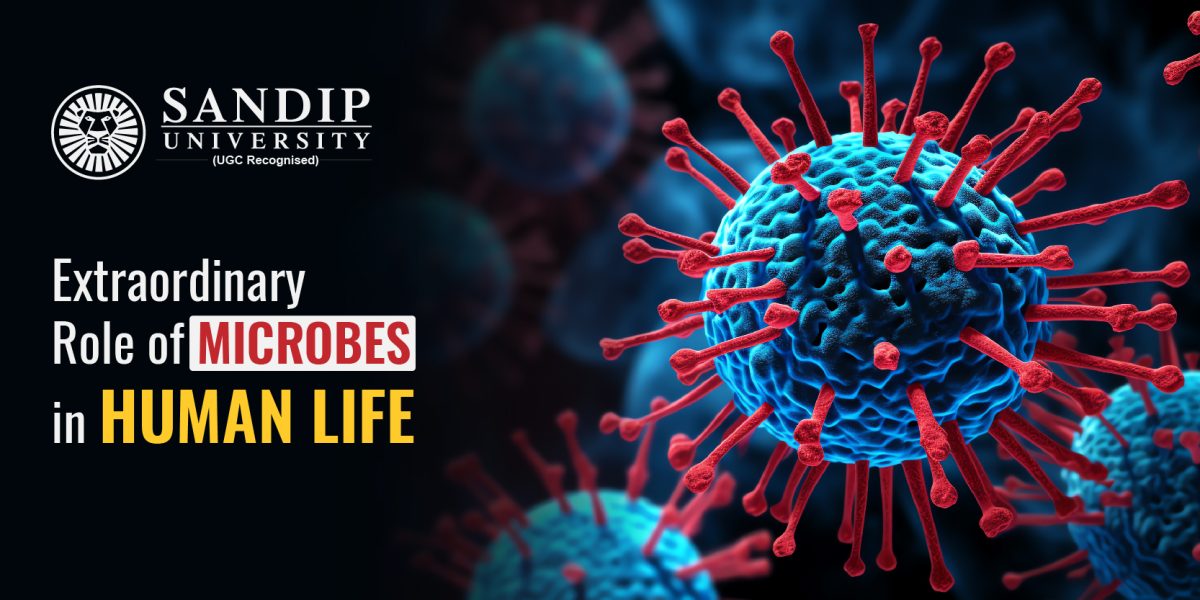We all know that microorganisms, which are very small creatures, have amazing properties that are absent in other living organisms. Microorganisms play an important role in our lives, without our realising it. Some of the top science colleges in Nashik offer undergraduate and postgraduate programs that focus on the study of microorganisms to better-understand their role in our lives.
Let us discuss certain properties of microbes that make them extraordinary:
1. Bioremediation: The Remedy to save the Earth
Many bacteria and fungi have adaptations for degrading different types of harmful chemicals and could be used for cleaning the environment. This is not wrong if we say this is a blessing from the creator for protecting nature. Many scientific studies show that some bacterial species are capable of degrading plastic, petroleum, heavy metal contaminants, etc.
2. Microbes as Friends of Farmers
When it comes to the field, the main concern of farmers is getting a high yield and protecting crops from pests. Numerous microbes have the ability to add nutrients to soil, not only by decomposition of dead living cells but also by certain mechanisms like nitrogen fixation, phosphate solubilisation, potassium, silicon mineralisation, etc., and as such, make the soil more fertile and therefore be used as a biofertiliser.
Bacteria and fungi also have the ability to produce compounds that prevent, kill, and inhibit many insect pests. We know that viruses also cause infection in plants, but don’t you know that there are viruses that cause infection in many insects and are used as Biopesticides.
3. They Make Food or They are Food
Microorganisms have the capability of converting complex biomolecules into simpler form, “simply making it delicious,” by performing biochemical reactions. By the fermentation process, they produce acids, alcohol, gases (carbon dioxide), etc., and also certain products, such as vitamins, amino acids, etc. As children, we always wonder why there are holes in idli and bread. That is due to the gas CO2 produced by fungi and bacteria that perform fermentation. You may have already heard about golden rice, golden orange, golden potato, but did you know about SCP (Single cell Protein) which is a cheap food product with the capacity to replenish malnutrition. “So yes, they are food themselves.” We can directly consume certain algae, fungi, and bacteria.
4. Normal Flora
The population of microbes that are permanent inhabitants of organisms. They are just living on you; your body is their home. Different organisms have different normal flora, which varies based on individuals and species, and different parts (organs, surfaces) have populations of different organisms. Let’s see an example. E. coli is a bacterium that lives in the human intestine and is important for normal health. If you shower every day, don’t think your body doesn’t have any microbes. Now this may come to your mind: is the organism good or bad? So, the answer is clear: it depends on individual immunity, environmental factors, and personal hygiene. Not only human inhabitant microbes but other organisms also have it. Many Avian (birds), fish, mammals, and pets) get sick due to poor hygiene and get infections from their own normal flora.
5. Factory of Bioactive Compounds
Every living creature has a certain defence mechanism to protect itself, and some of them produce antibiotics against life. For a long time, we have been using them for the treatment of infections, and over the years, they have become antibiotic-resistant (antibiotics fail to kill microbes). Now we need some other treatment options. Whenever we have a disaster, we move towards nature because nature is full of bioactive compounds. By using genetic engineering, we can make GMOs, which will have the capacity to produce bioactive compounds simply by using RDT (recombinant DNA technology). So it’s not wrong if we say it’s a factory of bioactive compounds.
6. Essential in the Environment
Scientists estimate that there are around 100 million different species of microorganisms on earth, present everywhere in soil, air, and water. They play a significant role in the environment and play the roles of decomposers (fungi and bacteria), producers (microalgae, bacteria), and consumers. They participate in element recycling by nitrogen fixation, denitrification, mineral solubilisation, etc.
7. Extremophiles
Any organism capable of inhabiting extreme environmental conditions is known as an extremophile. Many Archaea Bacteria are capable of living in extreme hot 410C and 1220C, and extreme low −200C, extreme salinity, pressure, acidic or alkaline conditions, and grow and reproduce normally. There is one bacterium, Deinococcus radiodurans, capable of surviving intense gamma radiation in space.
8. Causing Infections
We all have a fear of getting sick, so we wash and sanitise our hands because we know that infection is caused by microorganisms. Studies have shown that there are approximately 1400 human pathogens that have been characterised and known to cause infection. Among them, all bacteria, fungi, viruses are there and are famous for causing systemic and localised infections. Viruses are intracellular parasites that need a host cell for their replication and cause disease in plants and animals. Generally, mesophilic bacteria cause disease in animals, from normal food poisoning to severe infections like plague. Mainly, dimorphic fungi cause severe illness in humans.
9. Used as a tool
Microbes As they are very small, we can use them as a courier (vector) for carrying genes for gene delivery in vaccines, for inserting any chemical or drug of interest, for research, and therefore for their tremendous applications in microbial technology, genetic engineering, the medical field, etc.
Conclusion
These are some of the ways in which microbes have a great influence on our lives. As a versatile nature of microbes, they have tremendous application and by gaining knowledge of microbiology we can work interdisciplinary in any scientific field.

